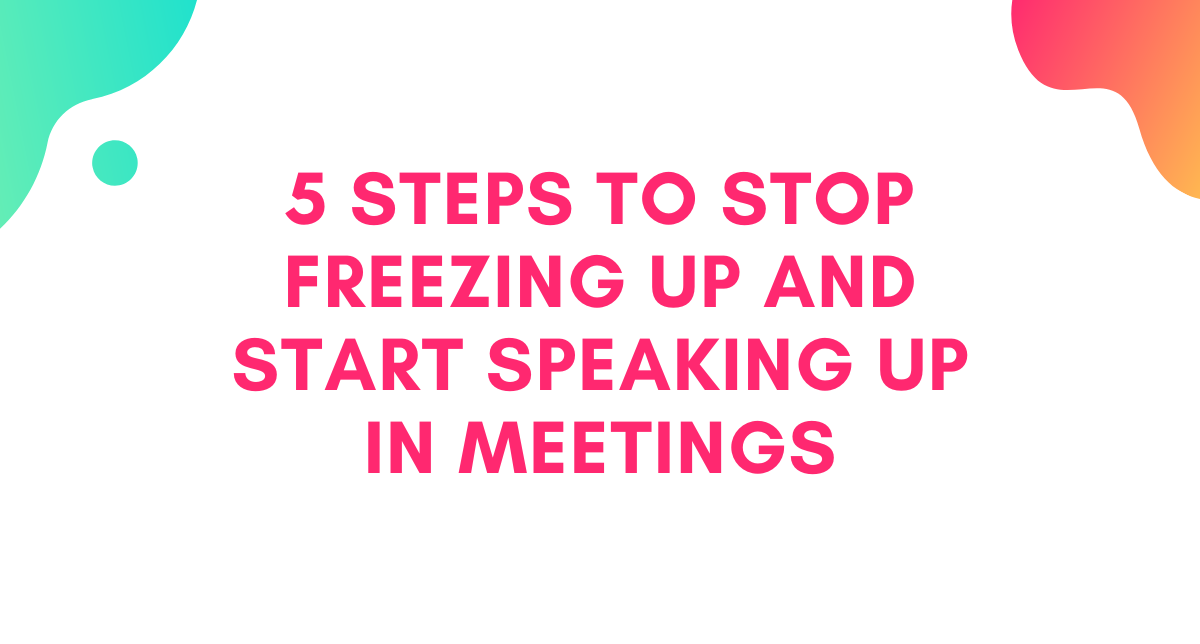3 Steps to Mitigate Misery: Micromanagers and Mediocre Teams
Sound Familiar?
My client, a director at an international organization, feels stuck between a micromanaging boss and a team that isn't meeting her expectations.
A straight shooter with C-suite ambitions, she's frustrated by the uphill battle of managing people.
The Trigger
Recently, she received an incomplete email about a time-sensitive project from one of her direct reports. Her response requesting the missing information was met with a terse and defensive reply.
Moments like these have her feeling tension behind her eyes and wondering:
Why is my team so mediocre?
Is it me? Am I doing something wrong?
Can I keep growing my career if I struggle with people like this?
The Conflict
No one wants to be a micromanager; neither does she. But it's exhausting to motivate people who seem disinterested in excellence.
She wonders if her struggle to inspire her team means she's failing as a leader.
What I Offered Her
There's a difference between support and judgment. When people sense you judge them as mediocre, they get defensive.
Here's the key:
Support and judgement feel different -- both to the giver and receiver.
Judgment often stems from our own insecurities, including: "Maybe I'm not cut out to manage people."
The leadership challenge is to offer support without judgment.
Do This Next Time
Pause. Before reacting to your team's mistakes, intentionally slow down. Take a deep breath. Set your intention to approach it differently than before.
Get curious, not furious. Ask open-ended questions like, "Help me understand your approach here. What was your thinking process?" Invite an open dialogue that gets people engaged, rather than feeling judged.
Stay constructive. Even if it's a small thing, articulate what's working. Then show them the better way to handle a task or explain the specific details of goals and deliverables.
This isn't about watering yourself down or pretending everything is fine. It's about fostering an environment where feedback fuels improvement. One that inspires people to tap into their own untapped potential.
Beyond Perceived Limits
Leadership is a journey, not a fixed label.
You're not just a "good" or "bad" leader -- you're someone learning to lead better every day.
As I help my clients grow their confidence, they discover that becoming an effective leader starts with trusting their own untapped potential, rather than compromising them.
By shifting from self-doubt to self-assurance, they become more empowered to lead their teams with clarity and purpose.
When you're confident in your approach, you're able to foster an environment where feedback is received as support and therefore fuels improvements, not resentment.
Sarah, if you're ready to take your leadership confidence to the next level, I'm here to help.
To get started, book your free hour-long consult, where we’ll map out your blueprint to confidence and ensure we’re a slam dunk fit for each other.
P.S. Are you wondering, "Will I have to overwork, or de-prioritize my personal life to make this work?"
Here's my one word answer: Nope.
A few more words on that: Improving your confidence and skill means you gain clarity on what to prioritize, so you make time for what's most important and reduce the time spent on things that don't move the needle. For example, micromanaging people or worrying about things you can't control.
Self-confidence doesn't come from being busy -- it's about aligning your actions with your intentions, values, and strengths.
Don't take my word for it, take Liz's -- a client who started coaching while working 70 hours a week and completed coaching working a normal work week, taking vacations, growing her team, and getting promoted to VP.
Click HERE to watch the 17 minute video interview with Liz.
Then click HERE to book your free consultation with me.





